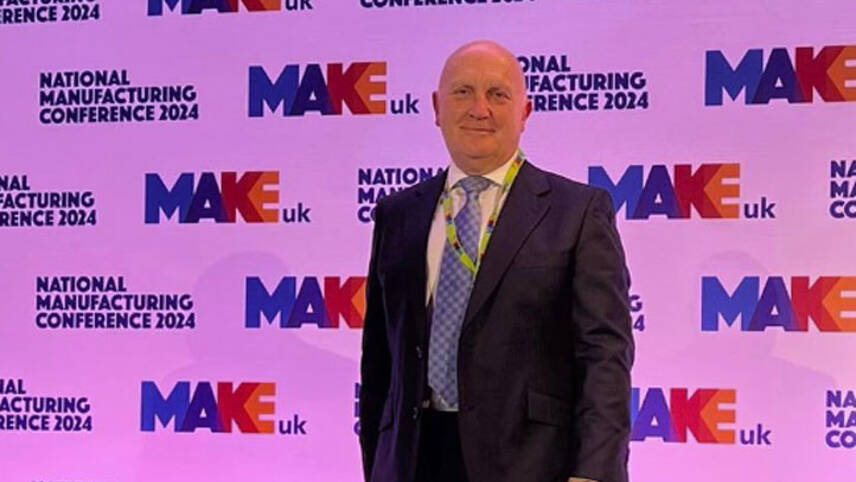Register for free and continue reading
Join our growing army of changemakers and get unlimited access to our premium content

Image: Make UK. Image: CEO Stephen Pinson.
The comments were made at Make UK’s National Manufacturing Conference in Westminster by CEO Stephen Pinson. This event convenes policymakers alongside representatives from many of Make UK’s 5,000+ member businesses.
Pinson welcomed the Government’s provision late last year of a £4.5bn package of grants and loans for British manufacturers in sectors deemed to be essential to the net-zero transition and to the nation’s economic growth. This package included £2bn for automakers seeking to produce electric models plus £960m for manufacturers of clean energy components.
Nonetheless, he expressed concerns that neither the Conservative Party nor the Labour Party had significantly aligned their pledges for the upcoming general election more strategically with the policies recommended in Make UK’s own manifesto, published in September last year.
A key manifesto recommendation was the creation of a long-term, modern industrial strategy embedding digitisation and decarbonisation. The Conservative Government has not provided a comprehensive update to its industrial strategy since 2017.
The manifesto also called for a lowering of electricity prices for manufacturers, plus more targeted incentives to help them shift from fossil fuels to electric technologies or alternative fuels. It noted that many larger firms are looking abroad to benefit from cheaper energy and a more stable green policy environment.
Pinson said: “We need to double down on maximising the opportunities of a net zero economy and safeguard UK energy security, the biggest, transformational issue we face.
“The UK has a genuine opportunity to become a world leader in this area attracting billions of pounds worth of private investment. Rather than arguing over a specific sum, we need to see policy certainty and clarity from whoever forms the next Government so that business can maximise the substantial opportunities green transition presents.”
This comment alludes to the Labour Party’s recent scaling back of its pledge for £28bn in green industrial funding from the Government annually, to £15bn. In confirming that change on 8 February, Party leader Kier Starmer laid the blame on poor economic management by the incumbent Conservative Government.
Upcoming Budget
Pinson also called for more “grown-up political debates that reflect the real interconnected world in which we live” and stated that the Treasury could go a way to combat short-termism by ending the practice of providing two Budget statements each year.
He said: “If that sounds radical, it’s because our approach to doing things needs to be radical, as Einstein said [that] insanity is doing the same thing over and over again while expecting a different result.
“I would urge the next Government to announce tax policies for the lifetime of a Parliament, which would only be changed if exceptional circumstances merit it. No changes to investment allowances, Corporation Tax or green targets for five years would really help.
“We need a return to political and policy stability, as well as a debate about some very serious choices we need to make as a country. But, five Prime Ministers in eight years and fifteen Business Secretaries in fifteen years is no recipe for this. Nor is the fact we have had six plans for growth in little over a decade, while the department responsible for industry has been re-organised five times in the same period. Any of you running businesses this way would have gone bankrupt.”
Chancellor Jeremy Hunt is due to present the 2024 Budget on Wednesday 6 March.
Hunt faces pressure to clarify how he will respond to the EU and US’s multi-billion green subsidy packages without aiming to out-spend.
EY has speculated that Hunt could set aside finance for energy planning reforms and fine-tune his existing £20bn commitment to carbon capture and storage. Clarity on carbon trading could also be on the cards, as well as interventions to make electric cars more affordable, following the closure of the Plug-In Grant schemes.


Please login or Register to leave a comment.